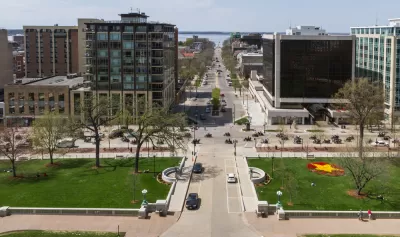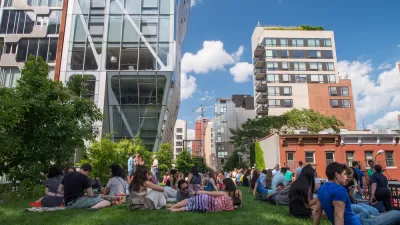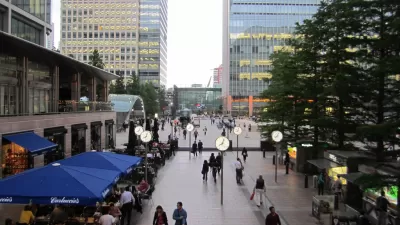A few regions have hoarded the growth of the tech innovation economy. A Brookings paper argues that Congress can help distribute tech innovation in growth centers around the Heartland of the United States.

A Brookings study bases recommendations for a federal program for tech industry growth on the data that shows just five metropolitan areas—Boston, San Francisco, San Jose, Seattle, and San Diego—"accounted for more than 90% of the nation’s innovation-sector growth during the years 2005 to 2017."
"The future of America’s economy lies in its high-tech innovation sector, but it is now clear that same sector is widening the nation’s regional divides," according to a Brookings article by Robert D. Atkinson, Mark Muro, and Jacob Whilton.
"Based on 'winner-take-most' network economies, the innovation sector has generated significant technology gains and wealth but has also helped spawn a growing gap between the nation’s dynamic 'superstar' metropolitan areas and most everywhere else," according to the article, to follow up on the point about widening divides.
So how does the trio suggest that tech innovation centers can be rolled out across the United States to the benefit of more people and places? Think of a New New Deal, of sorts: "Specifically, the nation needs—as one initiative among others—a massive federal effort to transform a short list of 'heartland' metro areas into self-sustaining 'growth centers' that will benefit entire regions."
The article is written to promote a new paper that proposes additional, specific actions to further that purpose. The article linked here includes more detail and data on the challenges facing the uneven integration of the tech sector into the fabric of communities around the country.
For instance, place-based interventions will be essential to achieve a more equal region distribution of tech industry growth. This challenge can't be left to the market alone, according to the article.
A separate article by Cat Zakrewski provides commentary and analysis of the Brookings pitch for growth centers.
FULL STORY: The case for growth centers: How to spread tech innovation across America

Alabama: Trump Terminates Settlements for Black Communities Harmed By Raw Sewage
Trump deemed the landmark civil rights agreement “illegal DEI and environmental justice policy.”

Planetizen Federal Action Tracker
A weekly monitor of how Trump’s orders and actions are impacting planners and planning in America.

How Atlanta Built 7,000 Housing Units in 3 Years
The city’s comprehensive, neighborhood-focused housing strategy focuses on identifying properties and land that can be repurposed for housing and encouraging development in underserved neighborhoods.

In Both Crashes and Crime, Public Transportation is Far Safer than Driving
Contrary to popular assumptions, public transportation has far lower crash and crime rates than automobile travel. For safer communities, improve and encourage transit travel.

Report: Zoning Reforms Should Complement Nashville’s Ambitious Transit Plan
Without reform, restrictive zoning codes will limit the impact of the city’s planned transit expansion and could exclude some of the residents who depend on transit the most.

Judge Orders Release of Frozen IRA, IIJA Funding
The decision is a victory for environmental groups who charged that freezing funds for critical infrastructure and disaster response programs caused “real and irreparable harm” to communities.
Urban Design for Planners 1: Software Tools
This six-course series explores essential urban design concepts using open source software and equips planners with the tools they need to participate fully in the urban design process.
Planning for Universal Design
Learn the tools for implementing Universal Design in planning regulations.
Jessamine County Fiscal Court
Caltrans
Institute for Housing and Urban Development Studies (IHS)
City of Grandview
Harvard GSD Executive Education
Toledo-Lucas County Plan Commissions
Salt Lake City
NYU Wagner Graduate School of Public Service





























